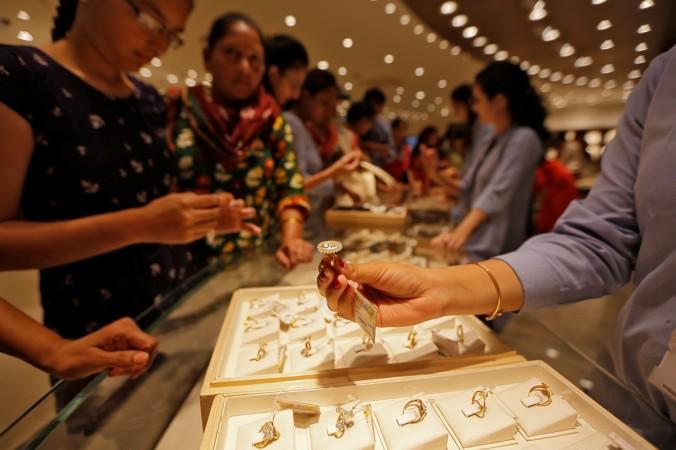
Gold demand in India this week was muted as a recent rally in domestic prices prompted buyers to postpone purchases despite the approaching festival and wedding season.
In the Indian market, gold futures were trading around Rs 32,070 per 10 grams on Friday, having touched Rs 32,311, the highest since July 6, last week.
"Consumers are struggling to adjust to higher prices," said Daman Prakash Rathod, a director at MNC Bullion, a wholesaler in Chennai. "They are waiting for a correction."
Demand in India, the second biggest gold consumer after China, usually picks up towards the end of the year going into the wedding season and major festivals such as Diwali and Dussehra, when buying the precious metal is considered auspicious.
"Dusherra demand was very weak. Jewellers are expecting poor demand even during Diwali due to higher prices," said a Mumbai-based dealer with a bullion importing bank.
Dealers in India were offering a discount of up to $7 an ounce over official domestic prices this week, unchanged from the last week and the highest since mid-June. The domestic price includes a 10 percent import tax.
Meanwhile, demand for the bullion was tepid in other major Asian hubs as well, weighed down by higher prices.
Global benchmark spot gold prices were on track to mark their fourth week of gains, the longest string of weekly gains since January.
Premiums in China eased to $4-$6 per ounce versus $4-$7 last week.
"There hasn't been much demand considering spot gold prices have risen about $70 from the lows of August," said Ronald Leung, chief dealer, Lee Cheong Gold Dealers, Hong Kong.
"Most of the purchases were done at the lows."
Gold prices have gained more than 6 percent after falling to $1,159.96 an ounce in mid-August, their lowest since Jan. 2017.
Premiums in Hong Kong narrowed slightly to 70 cents-$1.20 against 70 cents-$1.50 previously.
Meanwhile, in Singapore, dealers charged premiums of 70 cents to $1.50 over the benchmark, compared with last week's 60 cents-$1.20 range.
In Japan, prices remained on par with the benchmark, a Tokyo-based trader said.

















